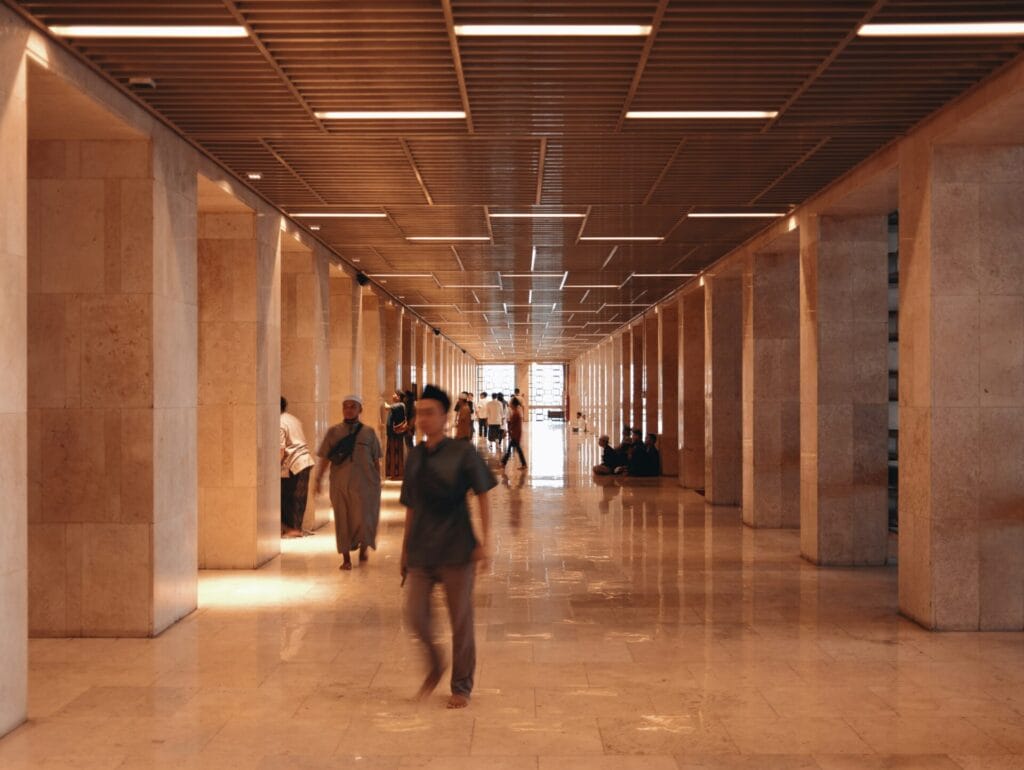Hajj, the annual pilgrimage to Mecca, is one of the five pillars of Islam and holds immense significance for Muslims around the world. It is a journey that every able-bodied and financially capable Muslim is required to undertake at least once in their lifetime. The pilgrimage takes place during the Islamic month of Dhu al-Hijjah and is a time of spiritual reflection, self-discipline, and communal worship. The significance of Hajj lies in its ability to bring together Muslims from diverse backgrounds and nationalities, fostering a sense of unity and solidarity among believers. The impact of Hajj extends beyond the individual pilgrim, influencing the global Muslim community and promoting a deeper understanding of Islamic teachings and values.
The global impact of Hajj is evident in the millions of pilgrims who converge on Mecca each year, transcending geographical, cultural, and linguistic barriers to fulfill their religious duty. The pilgrimage serves as a powerful symbol of the unity of the Muslim ummah, or community, as believers from all corners of the globe come together to perform the same rituals and seek forgiveness and spiritual renewal. The experience of Hajj is deeply transformative for many pilgrims, instilling a sense of humility, gratitude, and devotion that carries over into their daily lives. The impact of Hajj is not limited to the spiritual realm; it also has far-reaching economic and social implications for both host countries and the global Muslim community. As such, understanding the significance of Hajj is essential for appreciating its profound influence on individuals and communities worldwide.
The Journey of a Lifetime: Understanding the physical and spiritual preparation for Hajj and its transformative effect on pilgrims.
The journey of a lifetime begins long before the actual pilgrimage to Mecca, as pilgrims engage in physical and spiritual preparation for the arduous undertaking. Physically, pilgrims must ensure they are in good health and fit enough to endure the rigors of the pilgrimage, which includes walking long distances, standing for extended periods, and enduring crowded conditions. Additionally, pilgrims must make logistical arrangements for travel, accommodation, and other necessities, often months in advance. Spiritually, pilgrims engage in acts of worship, self-reflection, and repentance in the lead-up to Hajj, seeking to purify their hearts and minds in preparation for the sacred journey. The transformative effect of Hajj on pilgrims is profound, as they undergo a spiritual awakening and experience a deep connection to their faith and fellow believers.
The physical and spiritual preparation for Hajj serves as a means of self-discipline and purification for pilgrims, allowing them to shed worldly distractions and focus on their relationship with Allah. The journey to Mecca is a test of endurance and faith, requiring pilgrims to relinquish material comforts and confront their innermost fears and desires. The transformative effect of Hajj is evident in the profound sense of peace, humility, and gratitude that many pilgrims experience upon completing the pilgrimage. The physical challenges of Hajj are met with determination and resilience, while the spiritual rewards are immeasurable, leaving pilgrims with a renewed sense of purpose and devotion to their faith. The journey of a lifetime is not merely a physical and spiritual undertaking; it is a transformative experience that leaves an indelible mark on the hearts and minds of those who embark on it.
Unity in Diversity: Examining the diverse backgrounds and nationalities of Hajj pilgrims and the sense of unity and solidarity it fosters among Muslims worldwide.
Hajj is a testament to the diversity of the global Muslim community, as pilgrims from every corner of the world converge on Mecca to fulfill their religious obligation. The pilgrimage brings together individuals from diverse backgrounds, cultures, languages, and traditions, fostering a sense of unity and solidarity among believers. Regardless of nationality or social status, all pilgrims are equal before Allah during Hajj, wearing simple white garments known as ihram that symbolize purity and equality. The diversity of Hajj pilgrims is a reflection of the universal appeal of Islam, transcending geographical and cultural boundaries to unite believers in a common purpose. The sense of unity and solidarity fostered by Hajj extends beyond the pilgrimage itself, influencing the global Muslim community and promoting a deeper understanding of Islamic teachings and values.
The diverse backgrounds and nationalities of Hajj pilgrims serve as a powerful reminder of the universal message of Islam, which transcends ethnic, linguistic, and cultural differences. The pilgrimage to Mecca is a unifying force that brings together Muslims from all walks of life, fostering a sense of brotherhood and sisterhood that transcends geographical boundaries. The diversity of Hajj pilgrims is a testament to the inclusive nature of Islam, which welcomes believers from all backgrounds into its fold. The sense of unity and solidarity fostered by Hajj has far-reaching implications for the global Muslim community, promoting intercultural exchange, understanding, and cooperation among believers worldwide. As such, examining the diverse backgrounds and nationalities of Hajj pilgrims is essential for understanding the universal appeal and impact of the pilgrimage on individuals and communities across the globe.
Economic and Social Impact: Analyzing the economic and social implications of Hajj on host countries and the global Muslim community.
The economic impact of Hajj on host countries is significant, as millions of pilgrims flock to Mecca each year, generating revenue for local businesses, transportation services, accommodation providers, and other sectors. The influx of pilgrims stimulates economic activity in host countries, creating job opportunities and driving investment in infrastructure and services to accommodate the growing number of visitors. Additionally, the social impact of Hajj extends beyond its economic implications, as the pilgrimage fosters a sense of community spirit and solidarity among Muslims worldwide. The social impact of Hajj is evident in the bonds formed between pilgrims from diverse backgrounds, as well as the charitable initiatives undertaken to support those in need during the pilgrimage season.
The economic implications of Hajj extend beyond its immediate impact on host countries, influencing global trade, tourism, and investment in Muslim-majority regions. The pilgrimage serves as a catalyst for economic growth and development in these regions, creating opportunities for job creation, infrastructure development, and trade partnerships with other countries. Furthermore, the social impact of Hajj is evident in the sense of community spirit and solidarity fostered among Muslims worldwide during the pilgrimage season. The bonds formed between pilgrims from diverse backgrounds serve as a testament to the universal appeal of Islam, transcending geographical and cultural boundaries to unite believers in a common purpose. As such, analyzing the economic and social implications of Hajj is essential for understanding its far-reaching impact on host countries and the global Muslim community.
The Hajj Experience: Sharing personal stories and reflections from Hajj pilgrims and their experiences of spiritual enlightenment, self-discovery, and community bonding.
The Hajj experience is deeply personal for each pilgrim, as they embark on a journey of spiritual enlightenment, self-discovery, and community bonding. Many pilgrims describe their experience of Hajj as life-changing, citing moments of profound spiritual awakening, self-reflection, and connection with fellow believers. The pilgrimage to Mecca is a time of intense devotion and worship, as pilgrims seek forgiveness for past transgressions and strive to purify their hearts and minds in preparation for their encounter with Allah. The experience of Hajj is marked by moments of intense emotion, gratitude, humility, and awe at being in the presence of millions of fellow believers from diverse backgrounds united in worship.
Personal stories and reflections from Hajj pilgrims offer insight into the transformative power of the pilgrimage on individuals’ lives. Many pilgrims describe feeling a deep sense of peace and contentment upon completing Hajj, as well as a renewed commitment to their faith and community. The experience of Hajj fosters a profound connection with fellow believers, transcending language barriers and cultural differences to unite pilgrims in a common purpose. The bonds formed during Hajj endure long after the pilgrimage season has ended, serving as a source of strength and support for believers in their daily lives. Sharing personal stories from Hajj pilgrims offers a glimpse into the spiritual enlightenment, self-discovery, and community bonding that characterize the transformative experience of the pilgrimage.
Global Outreach: Exploring the outreach and influence of Hajj beyond the pilgrimage itself, including the dissemination of Islamic teachings and values to the wider world.
The outreach and influence of Hajj extend beyond the physical pilgrimage itself, reaching believers around the world through various forms of media, communication channels, and educational initiatives. The dissemination of Islamic teachings and values during Hajj serves as a means of outreach to non-Muslims as well as a source of inspiration for believers seeking to deepen their understanding of their faith. The global influence of Hajj is evident in its ability to transcend geographical boundaries to unite Muslims worldwide in worship while also serving as a platform for sharing Islamic teachings with non-Muslims. The outreach efforts during Hajj contribute to promoting intercultural exchange, understanding, and cooperation among believers worldwide.
The global outreach efforts during Hajj serve as a means of promoting greater awareness and understanding of Islam among non-Muslims while also strengthening bonds within the global Muslim community. The dissemination of Islamic teachings during Hajj serves as an opportunity for believers to deepen their understanding of their faith while also sharing its universal message with others. The influence of Hajj extends beyond its physical manifestation in Mecca to reach believers around the world through various forms of media, communication channels, educational initiatives, and outreach efforts. As such, exploring the outreach and influence of Hajj beyond the pilgrimage itself is essential for understanding its role in promoting intercultural exchange, understanding, and cooperation among believers worldwide.
Challenges and Opportunities: Discussing the challenges faced by pilgrims and host countries during the Hajj season, as well as the opportunities for intercultural exchange and understanding.
The challenges faced by pilgrims during Hajj include logistical issues such as overcrowding at holy sites, transportation delays, language barriers, health concerns, extreme weather conditions, and other factors that can impact their physical well-being. Additionally, host countries face challenges related to infrastructure development, crowd management, sanitation facilities, security measures, healthcare services, accommodation capacity, transportation networks, environmental sustainability concerns during the pilgrimage season. Despite these challenges, Hajj also presents opportunities for intercultural exchange and understanding among pilgrims from diverse backgrounds who come together in Mecca to fulfill their religious obligation.
The challenges faced by pilgrims during Hajj serve as an opportunity for believers to demonstrate resilience, patience, compassion toward one another while also fostering greater understanding among diverse communities. Host countries have an opportunity to showcase their hospitality while also addressing infrastructure development needs that can benefit local communities beyond the pilgrimage season. The challenges faced by pilgrims during Hajj present an opportunity for believers to come together in solidarity while also fostering greater understanding among diverse communities. Host countries have an opportunity to showcase their hospitality while also addressing infrastructure development needs that can benefit local communities beyond the pilgrimage season. As such discussing challenges faced by pilgrims during Hajj presents an opportunity for believers to come together in solidarity while also fostering greater understanding among diverse communities worldwide.
In conclusion exploring each aspect related to hajj provides an insight into its significance not only for individuals but also for communities worldwide. From its transformative effect on individuals to its economic impact on host countries hajj holds immense importance in Islam. It fosters unity among diverse backgrounds promoting intercultural exchange while also serving as a platform for sharing Islamic teachings with non-Muslims worldwide. Despite facing challenges hajj presents opportunities for believers to come together in solidarity while also fostering greater understanding among diverse communities worldwide.

